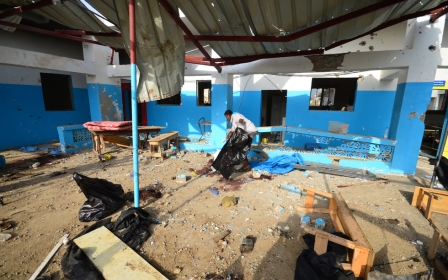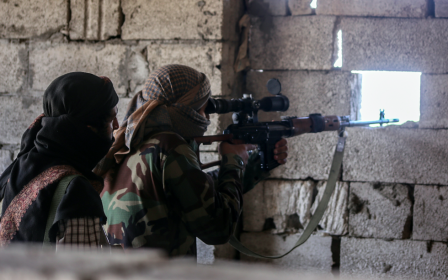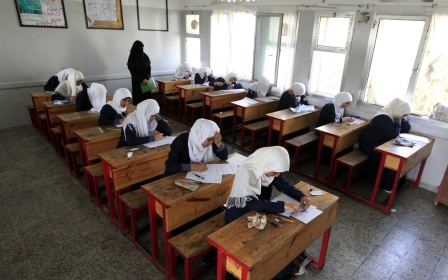US military cuts staff in Saudi involved in Yemen coalition planning

The US military has withdrawn from Saudi Arabia most of its personnel who were coordinating with the Saudi-led air campaign in Yemen and has sharply reduced the number of staff elsewhere who were assisting in the planning, US officials told Reuters.
Fewer than five US service members are now assigned full-time to the "Joint Combined Planning Cell," which was established last year to coordinate US support, including air-to-air refueling of coalition jets and limited intelligence-sharing, Lieutenant Ian McConnaughey, a US Navy spokesman in Bahrain, told Reuters.
That is down from a peak of about 45 staff members who were dedicated to the effort full-time in Riyadh and elsewhere, he said.
The staff withdrawal, which US officials say followed a lull in air strikes in Yemen earlier this year, appears to reduce Washington's day-to-day involvement in advising a campaign that has come under increasing scrutiny for causing civilian casualties.
The US military personnel were withdrawn from Riyadh in June, US officials said.
Still, "the shift does not diminish US commitment to supporting Saudi-led military operations. The JCPC forward team that was in Saudi Arabia is now in Bahrain," said Chris Sherwood, a Pentagon spokesman, who added that US aerial tankers continue to refuel Saudi aircraft.
The US officials said the reduced staffing is unrelated to growing international concerns over civilian casualties in the 16-month civil war that has killed more than 6,500 people in Yemen, about half of them civilians.
The officials, speaking on condition of anonymity, said that if the strikes intensify again, the US might decide to readjust its support. Peace efforts in Yemen have stumbled and the Saudi-led coalition's air campaign against Houthi rebels has been stepped up once more.
The conflict has brought Yemen close to famine and cost more than $14bn in damage to infrastructure and economic losses.
A spokesman for the Saudi-led coalition, Brigadier General Ahmed al-Asseri, declined to confirm details about the positioning of US military personnel but played down such moves.
"The relationship between the kingdom and the US is a strategic one. If true, this move reflects something at a tactical level," Asseri told Reuters. "The US may move its assets, but that doesn't have any impact on the bilateral relationship between the countries."
Since the campaign began, the US military has conducted an average of two refueling sorties a day. The US also has provided limited intelligence support to the coalition, but officials say that Washington has not selected targets.
American officials have said they are seeking ways to help the coalition improve targeting and have ensured Saudi access to precision-guided munitions. The Pentagon also has sent US military lawyers to help train their Saudi counterparts on how to ensure the legality of coalition strikes.
In recent months, however, the United Nations, international humanitarian organisations and even some US lawmakers have criticised the coalition air strikes.
An annual UN report on children and armed conflict said the Saudi-led coalition was responsible for 60 percent of child deaths and injuries in Yemen last year. Saudi Arabia has said the report is based on inaccurate information.
On Tuesday, a coalition airstrike hit a hospital operated by medical aid group Medecins Sans Frontieres in Yemen, killing 19 people and prompting the group to evacuate staff from six hospitals, citing a "loss of confidence in the Saudi-led coalition to prevent fatal attacks".
New MEE newsletter: Jerusalem Dispatch
Sign up to get the latest insights and analysis on Israel-Palestine, alongside Turkey Unpacked and other MEE newsletters
Middle East Eye delivers independent and unrivalled coverage and analysis of the Middle East, North Africa and beyond. To learn more about republishing this content and the associated fees, please fill out this form. More about MEE can be found here.




